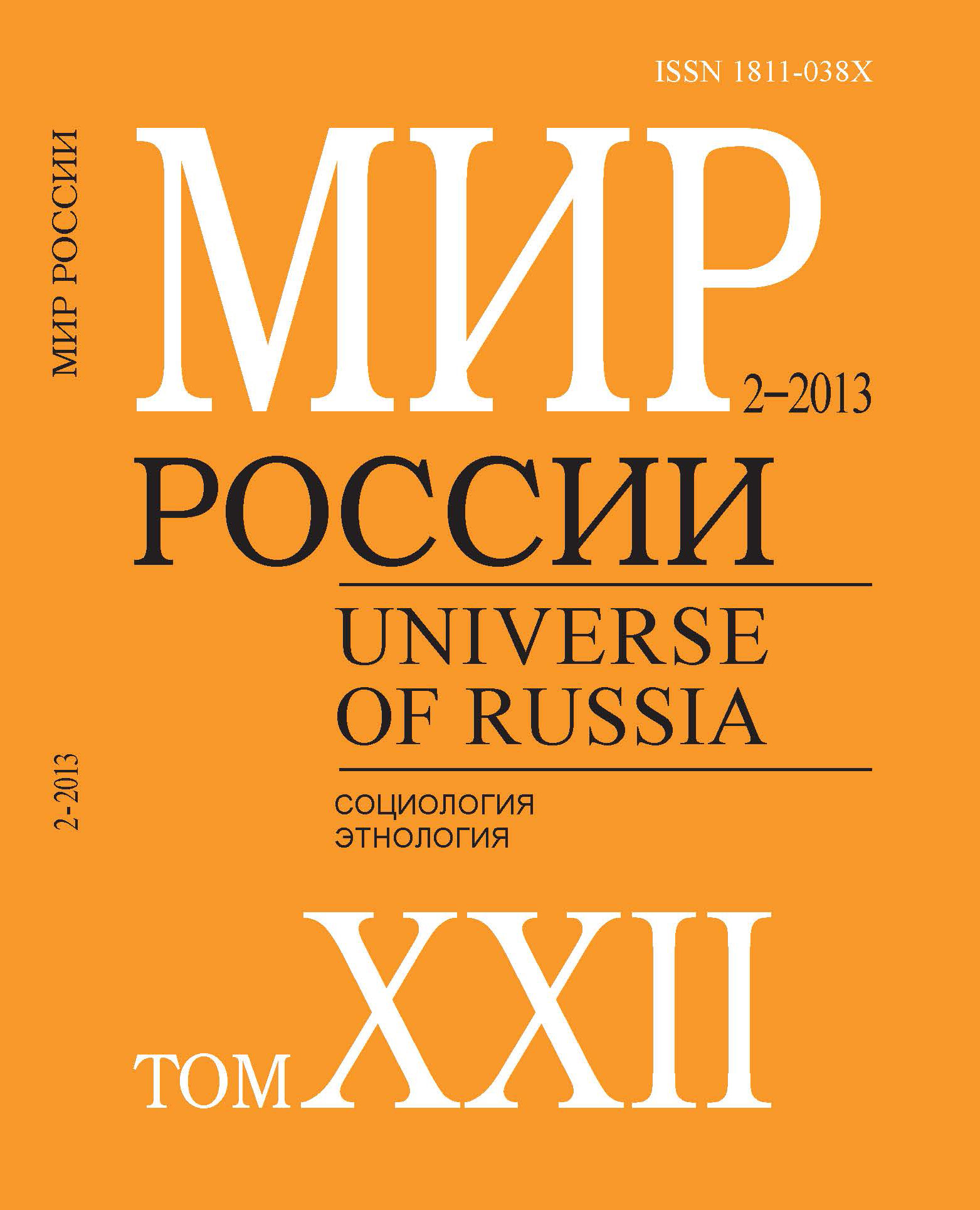Russian Workers in Time of Crisis: Capacity for Action and Social Partnership
Abstract
Ivan Klimov — Associate Professor, National Research University “Higher School of Economics”. Address: 20, Myasnitskaya St., Moscow, 101000, Russian Federation. E-mail: klimov_ivan@list.ru
By utilizing the materials of representative surveys among workers conducted in 2009 (an all-Russian sample N=2500) we analyze their ability to participate actively in the social-labour relations, capacity for individual or collective action to protect their interests, as well as particular features of self-identification and solidarity with other employees of the enterprise and Russian workers in general. We relied on the methodology developed by Vladimir Yadov and his colleagues for the study of solidarity in the workers’ environment. Data analysis was performed with various procedures of multidimensional classification.
We have identified four complex, closely related symptoms which reflect the specifics of self-identification of Russian workers.
Type 1: ‘Corporate collectivists’ (7%). Their most apparent feature is a clear understanding of common interests between workers and bosses with the ultimate delegation of responsibility to the superiors.
Type 2: ‘Poor singles’ (33%). These are mostly low-earning workers. They have little trust and belief in mutual support in the workers’ environment, making them less likely to participate in strikes (if it breaks out), although the majority of them are clearly dissatisfied with their earnings and any violations of their labor rights.
Type 3: ‘Self-sufficient persons’ (15%). They are confident about “workers and bosses pursuing their own distinct interests”, however, they do not feel or share the spirit of collectivism and solidarity with other workers. They are rather self-sufficient in the sense that they can easily find another job with better conditions. They also fail to see the commonality of interests between workers and administration, while at the same time reject the possibility of participating in protest activities being sure they can count on their own resources.
Type 4: ‘Solidarists’ (44%). They were further divided into other types: ‘high-minded solidarists’ (23%) and ‘conflict solidarists’ (21%). Both of them share the property of class solidarity, i.e. common interests, which are further distinguished from the interests of the administration. They are also very proud of their belonging to the working class. The most important difference is that perceptions of the first group remain purely at the state of ideology, vague and not motivated to collective action. The workers in the second group are more prepared to conflict with administration about their interests. They are well aware of any violation of their labor rights and are open to the corresponding dialogue with the administration. However, both types of ‘solidarists’ have little experience of collective action to effectively protect their interests.
The authors reveal that different capacity for collective actions of workers cause different attitudes towards confrontation or social partnership with the employer. It is highly significant that Russian workers do not regard trade unions as an organizational structure through which they could articulate and defend their interests in the sphere of labor. On the contrary, membership in a trade union is more likely a marker of loyalty to the administration. However, support for strikes and protest activity is usually accompanied with a willingness to interact and negotiate with an employer. What this means is that the major cause provoking strikes and protest activity in Russia is the rigidity of employers and their refusal to negotiate with workers.






